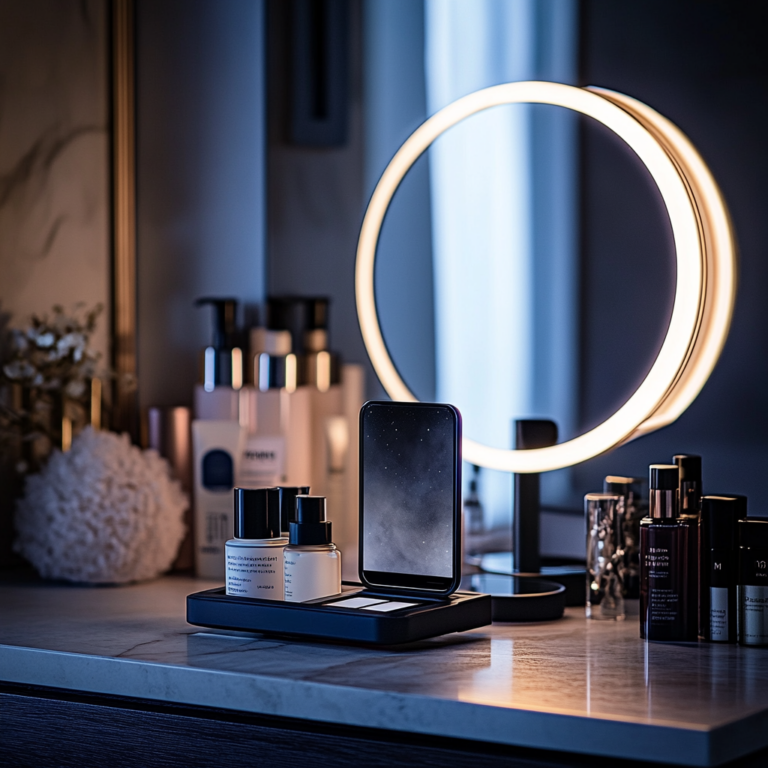All You Need to Know About FTC Guidelines and Influencer Marketing

Influencer marketing has taken off, and as a result, more rules are being created for running partnerships. The main focus of the rules is directed towards consumer protection, as well as bringing more order to the new form of advertising. Many consumers are going straight to social media influencer recommendations for what to buy. From a digital marketing agency perspective, this is great news! However, it also means more responsibility when it comes to contracting influencers and influencer endorsements.
The Federal Trade Commission (FTC) is a bipartisan agency as part of the federal government. Its main purpose is to oversee the protection of consumers and promotion of competition in the United States’ economy while also partnering with international organizations to have a watch on the global economy. The FTC protects consumers by stopping unfair, deceptive, or fraudulent practices in the marketplace in the form of investigations, creating policies, and educating consumers and businesses about their rights and responsibilities.
In order to further protect consumers on Instagram or another social media platform, the FTC has created guidelines for how and when influencers should disclose advertisements. They want influencers to be as transparent as possible with their audience especially when endorsing or recommending products. The FTC will be going after any deceptive ads. This goes for all types of exchanges and gifts between brands and influencers.
Disclosures 101:
Recently, the FTC published Disclosures 101 for Social Media Influencers as a guide to outline the appropriate practices and FTC guidelines for influencer agency marketing and make it simple. The guide includes new documents and videos to summarize how exactly the FTC wants marketers to ensure that consumers are aware of an advertising or financial relationship.
The FTC has defined more clearly what types of exchanges call for the need for proper disclosure and offers both effective and ineffective disclosure examples. The guide outlines the various ways that an influencer’s relationship with a brand would make disclosures necessary, and it reminds influencers that they cannot assume that followers are aware of their connections or paid endorsement with brands. In the guide, the FTC defines a relationship between an influencer and a brand as a “material connection” which includes receiving free or discounted products, receiving free or discounted services, being paid any amount of money and even being employed by the brand.
Why are Relationship Disclosures So Important?
Nobody likes feeling as if they were tricked into purchasing something or misled to buy a product. People appreciate having all the information necessary when making a decision. By having influencers disclose their brand relationship, consumers are able to better determine the credibility of the advertisement. If the advertisement is not disclosed properly, it can cause consumers to wonder about credibility. Influencers manage the relationships they have with their following and as marketers, and we need to be looking for influencers who have a real following that knows that their influencer wouldn’t post about something they don’t believe in.
To make sure the influencers you are working with are disclosing properly, create a messaging guidelines document that outlines appropriate partnership disclosure messaging. Although it is their job to include the disclosure in their post, it is the marketer’s job, as the person managing the “material connection,” to look out for clarity. The more clear you make it, the more successful it will be.
Overall tips for when and how influencers should tell their followers about a brand relationship
#1: Influencers can not make claims about products that are not backed by science
- An influencer can not say a product has certain health benefits or cures diseases. Them promoting a gifted product is a form of advertising and by making false claims of the product’s capabilities, results in the consumer being misled.
- This is very important when it comes to CBD products. Many people will claim that CBD cures anxiety. However, this is a false claim that is not scientifically proven. The brand you are working with should have strict messaging in place, but if they don’t then it is something the marketer can recommend that they put together.
#2: If an influencer is paid to discuss a product that they do not like, they can not lie and say they loved it
- They do not have to disclose their like/dislike, but must be honest as they recommend the product.
- For example, if it was a face lotion that was heavy, a can say that it is very hydrating, feels good on the skin and moisturizes nicely, etc. but they do not have to say it is their favorite product.
#3: Influencers can not talk about their experience with brands/products that they have not used
- It is important to note that influencers are not allowed to talk about their experience with any products or brands that they have not used.
- If you are working with products, talk with your clients at the beginning in order to know upfront how much product they feel comfortable sending. Having this conversation early will allow you to make sure you do not partner with more influencers than the brand is able to send products to.
#4: Use simple and clear language
- Simple explanations can be overlooked when they blend into the sentence. The influencer needs to make it very clear to the consumer that this product was gifted or discounted so that they are aware it is an advertisement.
- Common hashtags such as #ad, #sponsored, #advertisement makes it very clear when placed at the beginning of the caption. Although it is not necessary to include these, it is a great way to make sure it is clear to your audience as they are commonly understood. Place the disclosure so it is hard to miss.
- Hashtags to avoid: #sp #spon #collab
- The above are not clear enough and can be confusing to those who are not familiar with the terms.
#5: Avoid the use of beauty filters when advertising for beauty and skincare products
- In February 2021, the Advertising Standards Agency in the UK banned influencers from using beauty filters when advertising beauty products due to their ability to exaggerate the effect of the product. If an influencer decides to still use a filter, they must declare when they are being used.
- Although not banned in the U.S. officially, the campaign #filterdrop has encouraged influencers to provide more transparency when using a filter and advertising products.
Closing Thoughts
As influencer marketing continues to grow and consumers are looking to brands to provide transparency into their campaigns, staying up to date on the new FTC guidelines will ensure that your campaigns build consumer trust. It is ultimately up to the marketer to hold influencer partners accountable for disclosing relationships in their content. The more clear it is, the more successful it will be.
Our Editorial Standards
Reviewed for Accuracy
Every piece is fact-checked for precision.
Up-to-Date Research
We reflect the latest trends and insights.
Credible References
Backed by trusted industry sources.
Actionable & Insight-Driven
Strategic takeaways for real results.




